Marking the birth of the Republic of South Sudan, some northerners say goodbye, and welcome. Video conceived and compiled by Mo Elzubeir. It’s kind of a tearjerker.
Revolution on the Nile
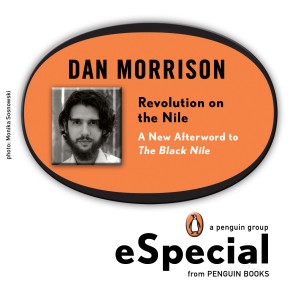 In just eight days a new country, the Republic of South Sudan, will be born. It’s a huge step – but not the last step – in a 55-years-and-counting struggle for dignity and self-determination.
In just eight days a new country, the Republic of South Sudan, will be born. It’s a huge step – but not the last step – in a 55-years-and-counting struggle for dignity and self-determination.
The south’s departure from Sudan has been as troubled as its union, with the recent fighting in Southern Kordofan and Abyei, as well as continuing insurgencies by southern renegades including George Athor and Peter Gadet. The Lord’s Resistance Army, too, remains active in the western part of the new country.
These are only the most obvious and immediate challenges faced by the southern people. Southern Sudan’s leaders, its people, and its nascent institutions will have to struggle mightily to prevent their new state from resembling the old Sudan in its approach to human rights, inclusivity, opportunity, and rule of law.
None of this should take away from the gigantic achievement that southern Independence represents. Millions died and millions more were made homeless, and endured famine, captivity and fear to get to July 9: A delicious and hugely challenging Year One. Democracy entails the right of the people and their representatives to make mistakes, to take responsibility for those errors (to “own” them, in the current parlance) and make corrections. It won’t be at all easy. But it’s a great, historic moment.
On July 5, Penguin Books will publish Revolution on the Nile, my new Afterword to The Black Nile, as an “e-special” available on the Kindle, the Nook, and Apple’s iPad, iPhone, and iTouch, as well as other e-readers. Revolution on the Nile updates The Black Nile with an account of south Sudan’s January freedom referendum, squashed attempts at public protest in northern Sudan, and the electrifying revolt against Hosni Mubarak in Egypt.
Sudan Cracks Up
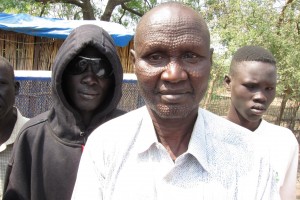 My four-day series on the coming breakup of Sudan in Slate magazine has received good notices from the likes of The Village Voice, The Browser, Bobby Ghosh of Time magazine, Microkhan, and the Wandering Savage.
My four-day series on the coming breakup of Sudan in Slate magazine has received good notices from the likes of The Village Voice, The Browser, Bobby Ghosh of Time magazine, Microkhan, and the Wandering Savage.
In case you missed the tasty 7,500-word opus, here’s a recap:
Part 1: Meet the Bernie Madoff of Sudan
Part 2: Fighting for Freedom in the New Sudan
Part 3: South Sudan: A Million Mutinies Now?
Part 4: South Sudan’s Oil Curse
Since the series began running, the insurgent militia leader Lt. General George Athor, who I quote in Part 3 of the series, has continued his private war in Jonglei state at the cost of some 300 lives. I’m posting, after the jump, notes from my January interview with Athor. I’ll reserve comment except to say the statements of this former golden boy of the Sudan People’s Liberation Army are extremely self-serving.
That’s all for now. I’m off to write a new chapter of The Black Nile to be included in the book’s upcoming Penguin paperback edition. So much has changed on the Nile this year, and so much of if for the better, that I felt the book needed an update.
Meet the Bernie Madoff of Sudan
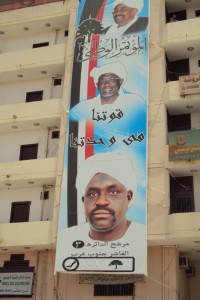 There’s an old saying in Darfur that goes: Kalash au bilash; Kalash begim al kash.
There’s an old saying in Darfur that goes: Kalash au bilash; Kalash begim al kash.
Translation: “You’re trash without a Kalashnikov; get some cash with a Kalashnikov.”
My newest story at Slate.com is about a Darfur police corporal who stole millions without ever flashing a gun.
I hope you enjoy the story of Adam Ismael, his $180 million Ponzi scheme, and Omar al-Bashir’s economic war on Darfur. It’s the first installment in a four-day series on the coming breakup of Sudan. (And here’s a piece I wrote from Sudan in January during the south’s historic independence vote.)
The Dam Bursts in Egypt
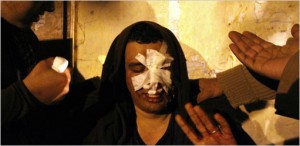 I’m not in Egypt, and I wish I was. Here’s a piece I wrote for Slate.com on the exhilarating and hard-won freedom from fear that has overtaken hundreds of thousands of Egyptians.
I’m not in Egypt, and I wish I was. Here’s a piece I wrote for Slate.com on the exhilarating and hard-won freedom from fear that has overtaken hundreds of thousands of Egyptians.
Meanwhile, as the deadly battle for control of Tahrir Square continues, with at least five dead at the hands of government-organized mobs, a few notes based on conversations with friends on the ground.
* The protests had been peaceful since the black-helmeted riot police were routed earlier this week – “a textbook Gandhian uprising,” as the Al Jazeera English anchor just described it. The young protesters controlling the square were checking people for weapons before allowing them to enter (“I got patted down in the nicest way,” said one female friend, this in a city well-known for the sexual harassment of women.) The violence started with the arrival of pro-Mubarak thugs carrying blades, clubs, razors, firebombs and guns. “A lot of people are going to die, and it’s because Hosni Mubarak, 82 and suffering from pancreatic cancer, does not know when to leave the cocktail party.” Continue reading “The Dam Bursts in Egypt”
Gratified in Gotham
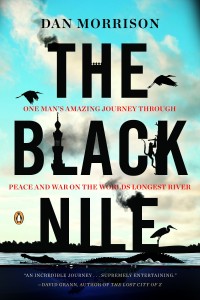 I’m very pleased that The Black Nile has been named one of the Village Voice’s Best Books of 2010, joining the likes of Patti Smith, Milan Kundera, Jennifer Egan, and The Anthology of Rap. This comes on the heels of a swell December 5 write-up by Joshua Hammer in The New York Times Sunday Book Review.
I’m very pleased that The Black Nile has been named one of the Village Voice’s Best Books of 2010, joining the likes of Patti Smith, Milan Kundera, Jennifer Egan, and The Anthology of Rap. This comes on the heels of a swell December 5 write-up by Joshua Hammer in The New York Times Sunday Book Review.
Visa officials permitting, I’ll be back in Sudan next month, covering the January 9 referendum for an obscure online journal.
Until then, Happy Holidays. (That’s The Black Nile‘s paperback cover image, by the way.)
Sudan: Where Children Vote
My newest piece, a bit truncated, on the opinion pages of today’s New York Daily News. Apparently I’m keeping Charles Krauthammer’s seat warm.
Nick Clegg is no Harry Perkins.
The surge in popularity by Nick Clegg and the Liberal Democrats ahead of Britain’s general election is the kind of story an American can get behind. Fresh face, clean values, no nukes, green as green, come out of nowhere — etc.
We love that stuff.
As brought home by recent statements on the part of his boarding school subordinate, Louis Theroux (ask them, not me), Clegg is a fully-paid member of Britain’s ruling class. But the notion of a relative political outsider coming within shooting distance of power recalled to me the brilliant career of my favorite British prime minister.
Now, the fact that Harry Perkins never lived is no reason discount his achievements. Continue reading “Nick Clegg is no Harry Perkins.”
Sudan: The Carter Center’s Preliminary Statement
Here’s a link to the Carter Center’s 21-page preliminary statement on Sudan’s elections. I breezed through the bullets, and the center’s key points seem to be:
1) It wasn’t a fair election.
2) Still, the exercise was a necessary one to fulfill provisions of the Comprehensive Peace Agreement, thereby making it legal to hold next year’s (dis)unity referendum, in which the south will vote to leave Sudan.
3) It was good practice. (For the next unfair election?)
and, importantly
4) Southerners didn’t get a fair shake either, thanks to intimidation by the Sudan People’s Liberation Army.
It seems accurate based on my reading and interviews. The language is neutral, not condemnatory, which will annoy some. And it further confirms what a lousy deal this has been for so many people working towards real pluralism and democracy in Sudan.
My guess is there’s probably enough praise in the document to allow the Bashir regime to declare victory, despite a similar statement from the European Union.
For details, read after the jump, and by all means check the excellent reporting at the Sudan Tribune and Radio Dabanga — and please do let me know what you think.
Continue reading “Sudan: The Carter Center’s Preliminary Statement”
A Travesty, a Logistical Nightmare, Irrelevant, Democracy
Four ways of looking at Sudan’s national elections
 Sudan’s first multiparty elections in 24 years started yesterday in an atmosphere of anger, hope and confusion. The last election, in 1986, followed a people’s uprising that removed a military dictator. How times change. Today another military dictator – Field Marshal Omar Hassan al-Bashir, an indicted war criminal — is Sudan’s leading candidate for president.
Sudan’s first multiparty elections in 24 years started yesterday in an atmosphere of anger, hope and confusion. The last election, in 1986, followed a people’s uprising that removed a military dictator. How times change. Today another military dictator – Field Marshal Omar Hassan al-Bashir, an indicted war criminal — is Sudan’s leading candidate for president.
Befitting Africa’s biggest, and perhaps most complicated, country, there are several ways of looking at Sudan’s elections: Continue reading “A Travesty, a Logistical Nightmare, Irrelevant, Democracy”
